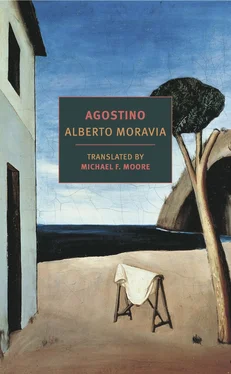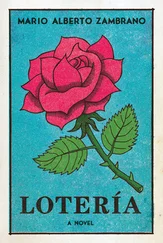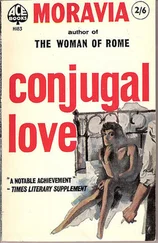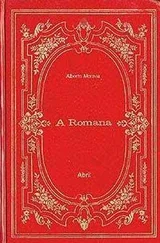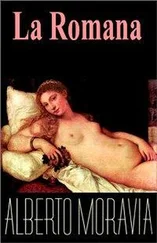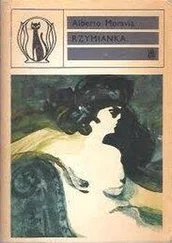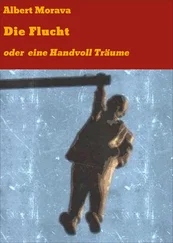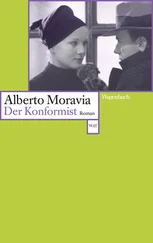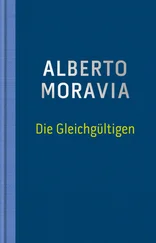Homs had skinny arms the color of roast coffee. Agostino thought his own looked stronger. “Let’s do it, Pisa,” the boy said, boasting stupidly, laying down in front of him. He had a listless, almost feminine voice, and as soon as his face was only a foot away, Agostino could see that his nose wasn’t flat, as he had imagined, but aquiline, small and turning in on itself like an oily black urchin, with a kind of clear, yellowish mole on one of his nostrils. His lips weren’t as big as other black people’s, but thin and purple. His eyes were round and white, oppressed by a swollen forehead from which a sooty mop of hair rose. “Let’s do it, Pisa. I won’t hurt you,” he added, slipping into Agostino’s palm a delicate hand with thin black fingers and pink fingernails. Agostino realized that if he pulled his upper arm a little closer, without appearing to do anything, he could put his whole weight behind his hand. At first this simple realization allowed him to resist and check Homs’s exertions. For a long while they were in a standoff, surrounded by the attentive boys. Agostino’s face was tense but firm. His whole body was straining while the black boy was grimacing, gritting his white teeth and squinting. “Pisa’s winning,” a voice said suddenly, amazed. But at that moment a terrible pain shot through Agostino from his shoulder and down his entire arm. Exhausted, he loosened his grip saying, “No, he’s stronger than me.” “The next time you’ll beat me,” said the black boy as he stood up, with his unpleasant, smarmy courtesy. “Even Homs beat you. You’re really worthless,” said Tortima scornfully. But now the boys seemed to have grown tired of teasing Agostino. “Let’s jump in the water,” one of them proposed. “Yes, yes, to the water,” they all shouted. Skipping and tumbling, they ran across the beach, over the burning sand, toward the sea. Watching them from a distance, Agostino saw them jumping into the shallow water one after the other, headfirst like fish, with big splashes and shouts of joy. When he reached the shore, Tortima emerged from the water like an animal, first with his back and then with his head, shouting, “Jump in, Pisa. What are you doing over there?”
“I have my clothes on,” Agostino said.
“Now I’m going to tear them off of you,” replied Tortima mischievously. Agostino tried to run away but wasn’t fast enough. Tortima grabbed hold of him, dragged him despite his efforts, and pulling him into the sea, held his head underwater, almost drowning him. Then he shouted, “See you later, Pisa,” and swam off at a sprint. Not much farther away he saw Sandro standing on a pattino , maneuvering elegantly between the boys who clamored around him, trying to climb into the boat. Soaking wet and breathing heavily, Agostino returned to shore and for a moment looked back at the pattino crammed with boys on their way out to the deserted sea under a blinding sun. Then, walking quickly over the glassy sand lining the shore, he headed back to Speranza beach.
IT WASN’T as late as he had feared. Once he’d reached the beach, he found that his mother wasn’t back yet. The beach was emptying. A few scattered swimmers still lingered in the dazzling sea. Everyone else, languid and overheated, was lined up beneath the midday sky, leaving by the boardwalk that led to the street. Agostino sat under the beach umbrella and waited. His mother’s ride seemed to be lasting longer than usual. Forgetting that the young man had arrived late and that it hadn’t been his mother who wanted to go alone but he who had disappeared, he told himself that the mother and the young man must have taken advantage of his absence to do the very things that Saro and the boys had talked about. The thought did not make him jealous; instead, it sent a shudder through him that was new and filled with complicity, curiosity, and smug, glum approval. It was right that his mother should behave in such a way with the young man, that she should go with him on the boat every day, and that at this very moment, far from prying eyes, between the sea and the sky, she should lose herself in his arms. It was right, and now he was perfectly capable of understanding it. While mulling over these thoughts, he scanned the horizon for the two lovers.
Finally the pattino appeared, no more than a white speck on the deserted sea, approaching rapidly. He saw his mother sitting and the young man rowing. The oars lifted and lowered, and every stroke was accompanied by a splash of glittering water. Agostino stood up and went to the water. He wanted to see his mother getting off the boat, to observe carefully any traces of the intimacy in which he had participated unknowingly for so long, and which now, after the revelations of Saro and the boys, he thought would appear to him in a completely new light filled with indecent telltale clues. From the pattino , even before it came to shore, his mother gave him a big wave. Then she jumped into the water cheerfully and in a few strides was by her son. “Are you hungry? We’re going to go have something to eat right away. Goodbye, goodbye, see you tomorrow,” she added in a melodious voice, turning around and waving to the young man. To Agostino she seemed happier than usual, and as he followed behind her on the beach, he couldn’t help but think that her goodbyes to the young man conveyed an elated pathetic joy, as if something the son’s presence had impeded so far had really happened that day. But his observations and suspicions stopped there. Besides, except for that ungainly joyousness so unlike her customary dignity, he couldn’t understand what exactly had happened during the ride and whether they had engaged in amorous relations. Face, neck, hands, body: no matter how closely he studied them with his cruel new awareness, they showed no sign of the kisses and caresses they had received. The more Agostino looked at his mother, the more disgruntled he felt.
“The two of you were alone today, without me,” he tried to say while they headed toward the cabin, almost hoping she would answer, “Yes, and we were finally able to make love.” But his mother seemed to interpret his words as an allusion to the slap and his subsequent running away. “Let’s not speak about what happened anymore,” she said, stopping for a moment, squeezing him by the shoulders and staring him in the face with her smiling excited eyes. “Agreed? I know that you love me. Give me a kiss, and not another word about it.” Agostino suddenly found himself with his face against her neck, once so sweet with the perfume and warmth that enveloped her chastely. But beneath her lips he seemed to sense a new yet faint throbbing, like the last surge of the bitter lingering feeling the young man’s mouth must have awakened in her flesh. The mother quickly climbed the stairs to the cabin. With his face blushing from a shame he could not understand, he lay down in the sand.
Later, on their way home, he ruminated at length, in the depths of his troubled heart, on these new and still-obscure sentiments. How strange it was that earlier, when he was still unaware of good and evil, his mother’s mysterious relations with the young man had seemed ridden with guilt. Now that the revelations of Saro and his young acolytes had opened his eyes and confirmed those first painful suspicions of sensuality, he was filled with doubt and unsatisfied curiosity. Earlier, his spirit had been aroused by filial affection, jealous and naive; now, in this cruel new light, his still undiminished affection had been replaced in part by an acrid disenchanted curiosity that found those first minor stirrings inconsequential. Earlier, every seemingly discordant word or gesture had offended him without enlightening him, and he had almost preferred to ignore them. Now that his eyes were always on her, the gaffes and missteps that used to upset him seemed insignificant, and he almost hoped to surprise her in one of the naked, shameless, natural poses he had just learned about from Saro and the boys.
Читать дальше
